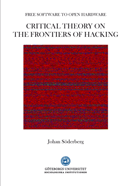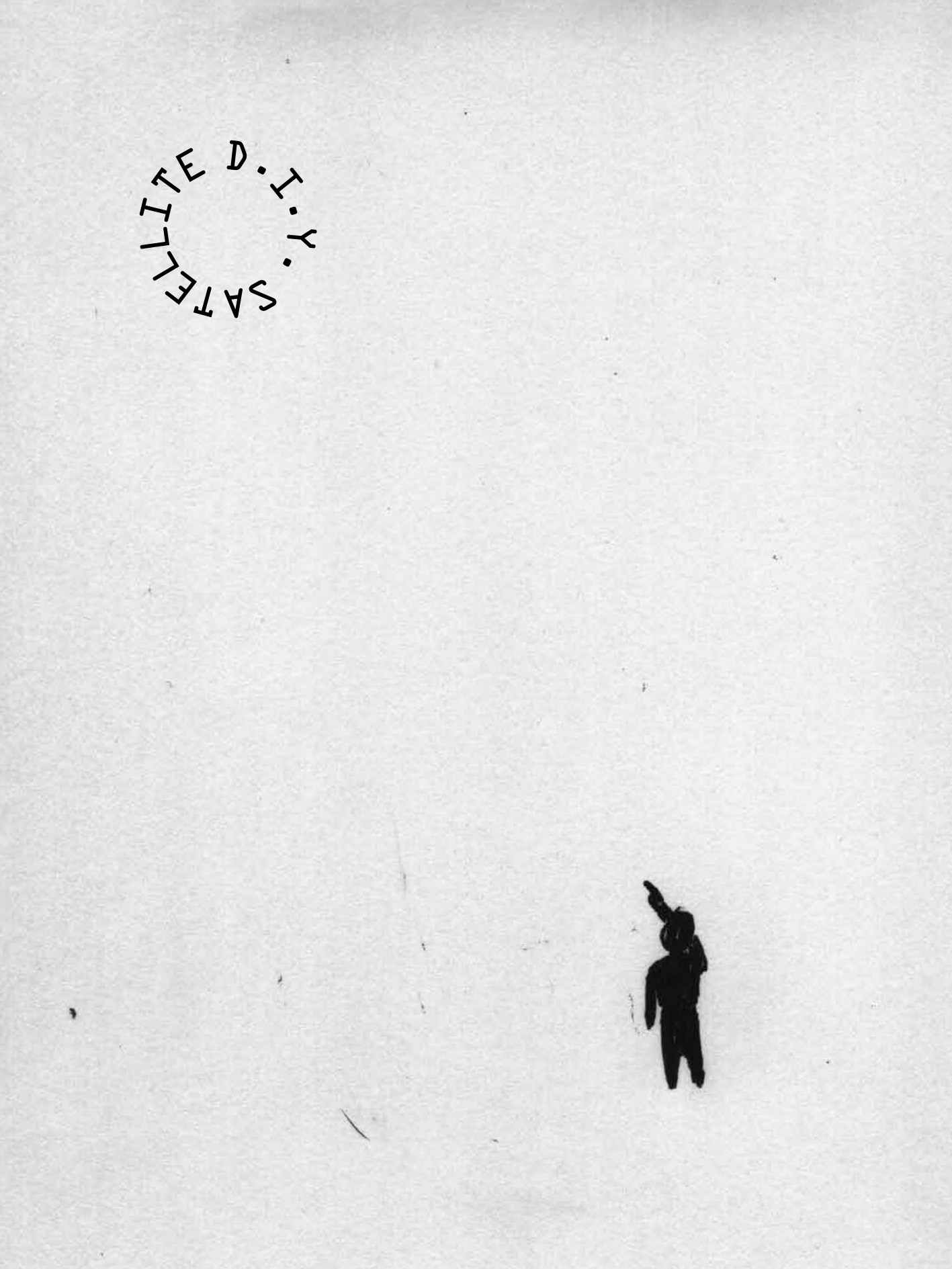Johan Söderberg: Free Software to Open Hardware: Critical Theory on the Frontiers of Hacking (2011)
Filed under thesis | Tags: · critical theory, critique, floss, free software, hacking, hardware, open hardware, software, technology

Starting from the experiences of hackers developing free software and open hardware, this thesis addresses some key and recurrent themes in the field of Science and Technology Studies (STS). It poses the question: how are technologies conceptualised, constructed and used in ways that render some aspects of them transparent, while leaving others opaque? This question is complicated by the fact that what is visible and transparent to some will remain opaque to others, depending on the level of technical expertise commanded. The political implications of this stand at the heart of my inquiry. Since technical know-how is unevenly distributed among groups in society, the same concern can be rephrased as follows: How are relations of power and conflict mediated through technology and relations of technical expertise/ignorance? While trying to address this question, the thesis delves into matters of epistemology. Just as programming skills are required for seeing what is going on behind the computer screen, so theoretically informed reflection can be considered necessary for rendering visible social relations not immediately apparent to the casual eye. Discussion of the actions of hackers is therefore combined in this thesis with discussion of the alternative programmes of research which can be applied to the study of these actions. Two programmes of research in particular receive attention: the critical theory of technology and constructivist science and technology studies (STS). Of these two, the relevance of the former tradition is emphasized and its value for research in the STS field defended. The thesis is composed of four articles and an introductory chapter summarizing and encapsulating my concerns. The first article discusses belief in technological determinism among hackers and how this does not necessarily stand in opposition to political engagement. On the contrary, it is common within hacker politics for contending viewpoints to be articulated in relation to seemingly apolitical narratives about technical neutrality and progress. The second article also deals with antagonistic relations at the heart of processes of technological change. It argues that the punitive actions of law enforcement agencies provide a clear indication of the presence of asymmetrical power relations in technological change through, for example, attempts to suppress filesharing inventions. Hackers are negotiating with legal authorities and the mass media, but also amongst themselves, about how to draw the line between the legitimate users and harmful misusers of technology. The third and fourth articles are based on a case study of a group of Czech hardware hackers who invented a wireless network technology for sending data with visible, red light. The challenges faced by these hardware hackers in their attempts to design technical solutions capable of being built by non-expert users are discussed at length in a theoretically-informed fashion.
PhD thesis
University of Gothenburg, Department of Sociology, March 2011
ISSN: 1650-4437
ISBN: 978-91-975442-7-6
68 pages
Creative Commons: Attribution-ShareAlike
Kimmo Karvinen, Tero Karvinen: Make: Arduino Bots and Gadgets. Learning by Discovery (2011)
Filed under book | Tags: · arduino, code, floss, hardware, interactivity, open hardware, open source, physical computing, programming, software, technology

Want to build your own robots, turn your ideas into prototypes, control devices with a computer, or make your own cell phone applications? It’s a snap with this book and the Arduino open source electronic prototyping platform. Get started with six fun projects and achieve impressive results quickly.
Gain the know-how and experience to invent your own cool gadgets.
With Arduino, building your own embedded gadgets is easy, even for beginners. Embedded systems are everywhere—inside cars, children’s toys, and mobile phones. This book will teach you the basics of embedded systems and help you build your first gadget in just a few days. Each learn-as-you-build project that follows will add to your knowledge and skills.
– Experiment with Arduino, the popular microcontroller board
– Build robots and electronic projects with easy-to-follow instructions
– Turn your ideas into working physical prototypes
– Use Android phones as remote controls in your projects
– Work with an uncomplicated programming language created for artists, designers, and hobbyists
– Get everyone involved, with projects that even beginners can build
Publisher O’Reilly Media, Inc., 2011
ISBN 1449389716, 9781449389710
295 pages
PDF (updated on 2015-2-12)
Comments (2)Song hojun: D.I.Y. Satellite (2009) [Korean, English]
Filed under artist publishing | Tags: · diy, hardware, open source, software, space

A zine by Song hojun, the leader of Open Source Satellite Initiative for developing a D.I.Y. satellite. Based on the artist’s sketch and manual of D.I.Y. Satellite, the publication contains thoughts on private space program, its execution plan, and things are going to happen afterward.
Proceeds from the sales will be used for building a satellite and renting a rocket.
Publisher Mediabus, Seoul, October 2009
Creative Commons Attribution-Share Alike 2.0 Korea
ISBN 9788994027043
40 pages
PDF, PDF (Korean, 10 MB, updated on 2016-12-25)
PDF, PDF (English, 10 MB, updated on 2016-12-25)

